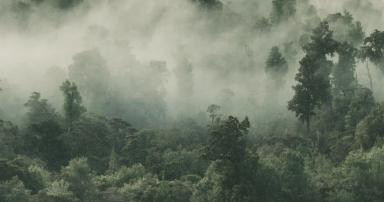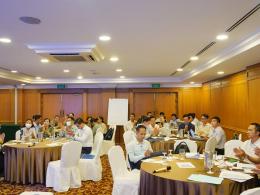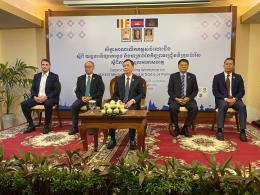After taking a look at the approximately $2,500 assemblage of sensors, thermometers and other tools, officials from the provincial Ministry of Water Management and Meteorology and others gathered inside the ministry’s narrow building. They chattered and cocked their heads toward the PowerPoint presentation that the husband and wife team of Krisanadej and Mullica Jarounstvtasinee – both professors at Thailand’s Walailak University – gave on how to collate data from the installation.
“If they have this kind of instrument, they can know . . . [if] the soil is wet [enough],” said Mullica, a professor of biology at the school’s Center of Excellence for Ecoinformatics, an emerging area of study combining information and ecological science. Cambodian farmers often water twice a day whether necessary or not, she explained.
In addition to collecting data on soil moisture at different levels of the earth – sensors sit at 25cm, 50cm, 75cm and 1 metre below the surface – the agrometerological station compiles statistics including pressure, temperature and total rainfall, Krisanadej Jarounstvtasinee, a physics professor, said.
To read the full article, please follow this link to the Phnom Penh Post article, Mon, 23 September 2013 - in the Phnom Penh Post - by Khouth Sophak Chakrya and Sean Teehan: http://www.phnompenhpost.com/national/evening-odds-mother-nature


